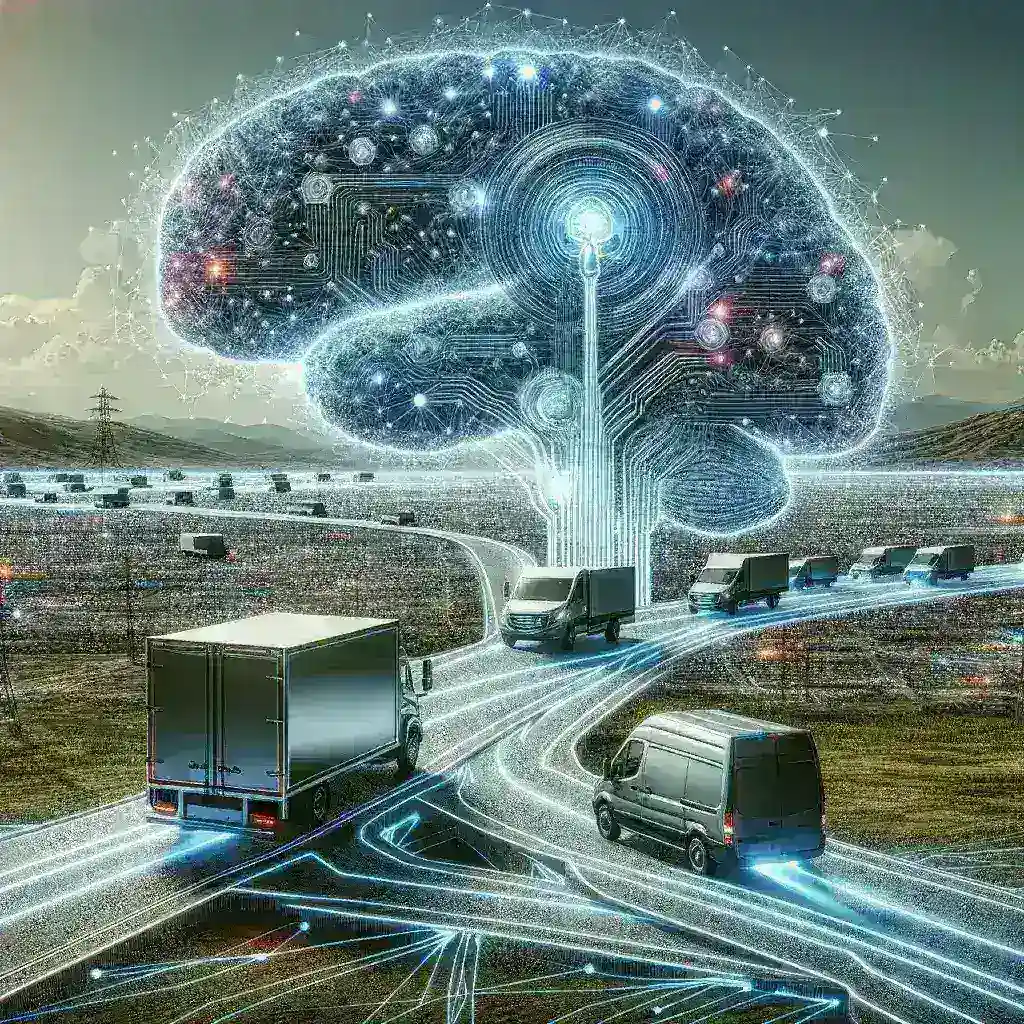UPS Expands AI-Powered Routing Algorithms for U.S. Logistics This September
In a groundbreaking move set to redefine logistics in the United States, UPS is expanding its implementation of artificial intelligence (AI) powered routing algorithms this September. This innovation is not only a testament to the company’s commitment to technological advancement but also a response to the increasing demands of the logistics sector. As businesses continue to seek efficiency and reliability, UPS’s decision to enhance its logistics capabilities through AI is poised to be a game changer.
The Evolution of UPS and Its Logistics Solutions
Founded in 1907, UPS began as a small messenger service in Seattle. Over the decades, it has evolved into a global leader in logistics, freight forwarding, and supply chain management. The company’s ability to adapt and innovate has been pivotal in its growth. Historically, UPS has embraced various technologies, from barcoding to tracking systems, and now, the focus on AI represents the next step in its technological evolution.
Understanding AI-Powered Routing Algorithms
AI-powered routing algorithms utilize machine learning and data analytics to optimize delivery routes. This technology allows UPS to analyze vast amounts of data, including traffic patterns, weather conditions, and delivery windows, to create the most efficient routes for its drivers. The advantages of such algorithms include:
- Increased Efficiency: AI can process multiple variables simultaneously, leading to quicker route optimization.
- Cost Reduction: By minimizing fuel consumption and reducing delivery times, UPS can lower operational costs.
- Improved Customer Satisfaction: Faster and more reliable deliveries enhance the customer experience.
The Impact of AI on U.S. Logistics
The integration of AI in logistics is already reshaping the industry landscape. According to a report by McKinsey, AI can potentially create up to $2 trillion in value for the logistics sector by 2030. For UPS, enhancing its routing algorithms is a significant step towards harnessing this potential. Some expected impacts include:
- Environmental Benefits: By optimizing routes, UPS can reduce carbon emissions, contributing to sustainability efforts.
- Workforce Transformation: AI will enable drivers to focus more on customer interaction and less on navigation.
- Scalability: As e-commerce continues to grow, AI will allow UPS to scale its operations efficiently.
Real-World Applications and Success Stories
Many companies have already begun to witness the benefits of AI-powered logistics. For instance, UPS has successfully implemented these algorithms in select urban areas, resulting in a 10% reduction in average delivery times. This success story highlights the potential for broader nationwide applications this September, as the company rolls out its expanded approach.
Challenges and Considerations
While the advantages of AI-powered routing algorithms are clear, the transition is not without challenges. Key considerations include:
- Data Privacy: As UPS collects and analyzes more data, ensuring the privacy and security of customer information will be paramount.
- Integration with Existing Systems: Merging new AI systems with legacy operations can pose technical difficulties.
- Employee Training: Investing in training will be necessary to equip employees with the skills to work alongside AI technology.
Looking Forward: The Future of UPS Logistics
As UPS expands its AI capabilities, the future of logistics appears promising. Analysts suggest that the company could see a reduction in operational costs by up to 25% with the full-scale implementation of AI routing algorithms. For businesses relying on UPS for their shipping needs, this translates to faster deliveries and potentially lower shipping costs.
Expert Opinions on AI in Logistics
Industry experts have weighed in on the importance of AI in logistics. According to logistics consultant Dr. Linda Smith, “The adoption of AI is no longer an option but a necessity for companies looking to thrive in a competitive landscape. UPS is taking a bold step forward, and it will set a precedent for others in the industry to follow.”
Conclusion
UPS’s decision to expand AI-powered routing algorithms this September marks a significant milestone in the evolution of logistics in the U.S. This transformation promises not only to enhance efficiency and reduce costs but also to improve customer satisfaction and promote sustainability. As the logistics sector continues to evolve, staying ahead of the technological curve will be key to success for companies like UPS. The future of logistics is here, and it is powered by AI.

